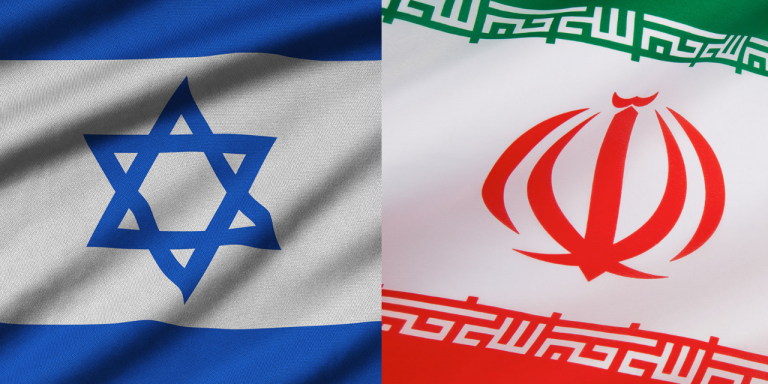
Several notable Israeli operational successes inside Iran have caused a shake-up in Iran’s intelligence leadership.
Israel is shifting from primarily targeting Iran’s regional allies to striking high-profile locations and figures within the Islamic Republic itself.
Covert warfare between Iran and Israel has the potential to derail talks to revive the 2015 multilateral Iran nuclear deal.
There is a growing possibility that the Israel-Iran conflict could escalate and expand into broader regional warfare.
Over the past several years, Iran and Israel have engaged in covert warfare against one another as part of an ongoing low-intensity conflict between the two. To date, the conflict has taken the form of cyberattacks on infrastructure, strikes on oil tankers, UAS attacks, and Israeli-sponsored assassinations of Iranian security and scientific personnel and sabotage of facilities inside Iran. A prominent example of this took place in November 2020, when Israeli agents organized the assassination, inside Iran, of Mohsen Fakhrizadeh, who was the chief of Iran’s nuclear program. Just last month, an Islamic Revolutionary Guard Corps (IRGC) officer, Brigadier General Ali Nasiri, was arrested on charges of spying for Israel, demonstrating the extent to which Israel has been able to penetrate the Iranian security establishment.
In May, another Israeli operation in Iran precipitated a chain of events leading to one of the most prominent shake-ups in Iran’s security apparatus in many years. Earlier that month, agents linked to Israel assassinated IRGC Colonel Sayad Khodayee, who was the deputy commander of the IRGC Qods Force “Unit 840” – which plans cross-border assassination and kidnapping operations against foreigners, including Israelis. U.S. officials told journalists that Israel had informed the U.S. government that it was behind the killing. The Khodayee killing apparently increased pressure on Iran’s security establishment to retaliate, and, in mid-June, Iran appears to have authorized an operation to assassinate Israeli tourists visiting Turkey. The plot was uncovered, and Turkey arrested five Iranians and three Turkish nationals allegedly involved. The failure of the Iranian operation not only cast doubt on Iran’s ability to respond proportionately to Israeli operations against Iran but also precipitated a diplomatic row between Ankara and Tehran.
The recent operational security failures, coupled with the resultant diplomatic dispute with Turkey, prompted a major change in Iran’s intelligence hierarchy. In a decision that would have required the backing of Iran’s Supreme Leader, the regime removed IRGC chief of intelligence Hossein Taeb from his decade-long post, appointing him instead as an adviser to the IRGC commander-in-chief. Taeb had earlier been head of the Basij mobilization militia that is controlled by the IRGC and, in his role as IRGC intelligence chief, was instrumental in suppressing domestic dissent and in targeting regime dissidents living abroad. Taeb’s demotion represented a loss of confidence in his ability to reverse the recent Israeli intelligence successes, as well as the perception that a rift with Turkey could compel Ankara to join other regional states opposed to Iran.
Israeli willingness and ability to strike inside Iran – including a May UAS strike targeting Iran’s secretive Parchin military complex – has broader implications for the region. Israel’s increasing willingness to conduct covert action within Iran suggests a change in strategy. Rather than targeting Iran via its allies and proxies, Israel appears sufficiently emboldened to directly strike Iran’s strategic capabilities. This apparent shift in Israeli strategy suggests that Jerusalem is no longer content to rely either on U.S. sanctions to weaken Iran strategically or on the ability of a revived multilateral Iranian nuclear deal to contain Iran’s regional ambitions over the longer term. In parallel with its attacks, Israel has also sought to use its expanding ties to several Persian Gulf and other Arab states to construct a regional alliance to counter Iran. At the same time, Israel continues to conduct periodic strikes on Iran-backed facilities and militias in Syria and has oriented its air defenses to parry missile and rocket attacks by Lebanese Hezbollah and the Gaza-based Hamas.
Israel’s strategy towards Iran complicates U.S. efforts to stabilize the region. Israeli political leaders oppose efforts by the Biden administration to return to the 2015 multilateral nuclear deal and assert that Israel has the right to take any action against Iran’s nuclear program or other strategic assets that it deems necessary for Israeli security. However, U.S. officials argue that Israeli or American military actions, along with U.S. sanctions, cannot curb Iran’s nuclear program with the same degree of certainty and verifiability as a nuclear agreement. The Israeli attacks inside Iran have the potential to derail the talks, which have already faltered over U.S.-Iran differences. Indirect U.S.-Iran talks in Doha in late June adjourned with no reported progress. Iran has not, to date, walked out of the year-long talks because of any Israeli operation against Iran, but there is no certainty how Tehran might react to an Israeli action on a larger scale. More broadly, the Israeli attacks contribute to an escalatory cycle, by enabling Iranian leaders to justify future attacks on shipping in the Persian Gulf, on the Gulf states themselves, and on U.S. forces based in Iraq and Syria. The likelihood that Iran will retaliate against Gulf state territory has increased as the Gulf states have, in recent years, aligned with Israel against Tehran. Another strike on the order of magnitude of the September 2019 Iranian missile attack on Saudi Arabia, which temporarily halted nearly half of Saudi oil production, cannot be ruled out. An attack of that scale would further shock global oil markets already struggling to compensate for Western sanctions on Russia’s oil and gas sectors. Although Jerusalem and Tehran have grown accustomed to low-intensity conflict conducted largely in the shadows, there is always the potential that a misperception or miscalculation on either side, could escalate the conflict and drag the region into outright war.
